








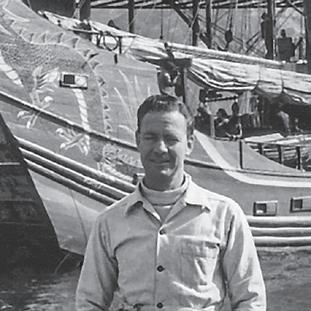
Contributor Board
Cathy Jennings, Chair Tom Wills, Bruce Doeg, Demetria Kalodimos, Ann Bourland
Linda Bailey • Amanda Haggard • Hannah Herner • Tom Wills • Ridley Wills II • Joe Nolan • Julie B. • Harold B. • Victor J. • Wild Bill • David “Clinecasso” C. • Kim B.
• Anthony G. • William B. • Daniel H. • Jaime W. • Dennis S.

Cathy Jennings • Tom Wills • Joe First
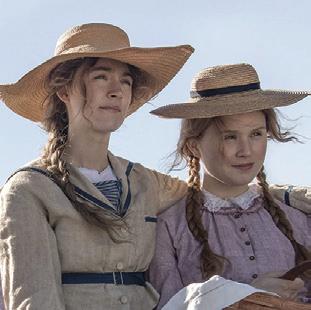
• Andy Shapiro • Michael Reilly • Ann Bourland • Patti George • Linda Miller • Deborah Narrigan • John Jennings • Barbara Womack • Colleen Kelly • Janet Kerwood • Logan Ebel • Christing Doeg • Laura Birdsall
• Nancy Kirkland • Mary Smith • Andrew Smith • Ellen Fletcher • Michael Chavarria
 BY TOM WILLS, CO-FOUNDER
BY TOM WILLS, CO-FOUNDER
The paper you just paid for was bought by someone else first, otherwise it wouldn’t exist. That’s how The Contributor works. A vendor who experienced homelessness paid 50 cents for this paper and then sold it to you. By buying it and taking it with you, you’ve just encouraged that vendor to buy another. BOOM! That’s the solution. Now keep reading. This paper has something to say to you.
Street papers provide income for the homeless and initiate a conversation about homelessness and poverty. In 2007, The Contributor founders met at the Nashville Public Library downtown to form one. In a strike of lightning we named it The Contributor to infer that our vendors were “contributors to society,” while their customers could contribute to their work. But, thunder from lighting is always delayed … It took three years, but Nashville embraced us like no other city in the world. The Contributor became the largest selling street paper per-capita on the globe. And today 50 percent of our six months or longer tenured vendors have found housing. BOOM! The thunder has struck.

The Contributor is a different kind of nonprofit social enterprise. We don’t serve meals or provide emergency shelter. We don’t hire people in poverty to create products or
provide a service. Rather, we sell newspapers to homeless people who work for themselves. We train them to sell those papers to you, keep the money they earn, and buy more when they need to replace their stock.
Our biggest fans don’t always get this. Like lightning without the thunder, they see the humanity of the vendor but misunderstand the model. Case in point: In 2013 during a funding crunch, a representative of one of Nashville’s biggest foundations exclaimed, “I’m such a big fan that I never take the paper!” We responded, “Well, that’s why we are in a funding crunch.” BOOM! Thunder was heard. Taking the paper makes our model work — not taking it breaks it.
And selling the paper twice doesn’t just fund the paper, it funds housing and change. BOOM! Our vendors report their sales to qualify for subsidized housing and even for standard housing deposits and mortgages. They don’t consider your buying the paper a “donation.” It is a sale. When they sell out, they buy more and build the paper trail of a profitable business. Until making these sales, many of our vendors had never experienced the satisfaction of seeing their investment pay off. And when it does, it liberates! They have become “contributors” to their own destiny. And Nashville has be-
Scan the QR Code to the left, or find us @The-Contributor!
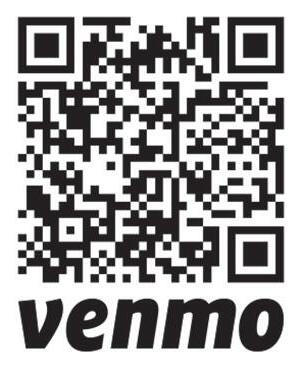
Make sure to include your vendor's badge name and number in the description!
And don't forget to take the paper!
come a city of lightning and thunder. BOOM!
Now that you are a SUPPORTER, become an ADVOCATE or a MULTIPLIER
You are already a SUPPORTER because you know that taking the paper makes the model work. You bought the paper and you are reading it. Now your vendor is one copy closer to selling out, which is exciting!
Now you can become an ADVOCATE when you introduce your friends to your favorite vendor, follow us and share our content on social media, contact us when you witness a vendor in distress or acting out of character, or explain why others should pick up a copy and always take the paper when they support a vendor.
And, you can become a MULTIPLIER when you advocate for us AND directly donate to us or become an advertiser or sponsor of The Contributor. Our income stream is made of 50-cent- at-a-time purchases made from our vendors, matched by contributions, ad sales and sponsorships from multipliers like you. Because our vendors are business owners, your donations are seed-money investments in their businesses and multiply in their pockets. Every donated dollar multiplies four-to-seven times as profits in the pockets of our vendors.
Thanks for contributing.

New vendor training Monday, Wednesday, Friday 10 a.m. at Downtown Presbyterian Church, 154 5th Ave N. and 10:30 Thursdays at Room in the Inn, 705 Drexel St. Next vendor meeting Jan. 8 at DPC 9:30 a.m.

Will Connelly, Tasha F. Lemley, Steven Samra, and Tom WIlls Contributor Co-Founders
Editorials and features in The Contributor are the perspectives of the authors. Submissions of news, opinion, fiction, art and poetry are welcomed. The Contributor reserves the right to edit any submissions. The Contributor cannot and will not endorse any political candidate. Submissions may be emailed to: editorial@thecontributor.org


Requests to volunteer, donate, or purchase subscriptions can be emailed to: info@thecontributor.org Please email advertising requests to: advertising@thecontributor.org

Mailng Address
The Contributor P.O. Box 332023, Nashville, TN 37203 Main Office: 615-499-6829 Vendor Office: 615.829.6829
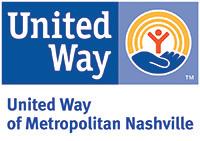

Proud Member of:

Printed at:
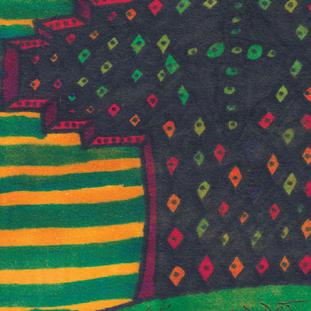
Follow The Contributor:
Copyright © 2018 The Contributor, Inc. All rights reserved.
The Contributor now accepts Venmo!
My grandfather, Ridley Wills, was born in Brownsville, Tenn., Sept. 19, 1871. When his father, Dr. Thaddeus Wills, died of a heart attack in 1878 while making his rounds on horseback treating people for yellow fever, Dr. Wills’s widow was left to raise her two boys, Mann and Ridley alone. As so many enterprising young people in small towns do, Ridley left Brownsville as a young man to seek fame and fortune in Nashville.
He accomplished this by co-founding in 1901, with C. A. Craig, the National Life and Accident Insurance Company. In time Ridley became nationally known as an expert on weekly premium life insurance. Ridley had an aunt in Brownville, Eva Mann Moore, who was very proud of Ridley and of another young man on the other side of her family. That young man’s name was Richard Halliburton. He too was born in Brownsville, on Jan. 9, 1900, a generation younger than Ridley.
Richard moved to Memphis, where he grew up. His favorite course as a schoolboy was geography. He attended Memphis University School and Hutchison School before going off to Lawrenceville Prep School in New Jersey. There, he was chief editor of The Lawrence. He next attended Princeton where he was on the editorial board of The Daily Princetonian and edited The Princetonian Pictorial Magazine
In 1919, Halliburton dropped out of Princeton to walk around England and France before returning to Princeton, to get his degree. His travels in Europe solidified Halliburton’s desire to live an unconventional life, and to make a living by writing about his adventures.
Although, he did not have an athletic build, one of his early escapades was to swim the length of the Panama Canal. Only ships were allowed to navigate the canal, so Halliburton registered himself as the S. S. Halliburton, paid the lowest fee in history, thirty six cents, based on his length and weight, and swam the canal, Atlantic to Pacific.
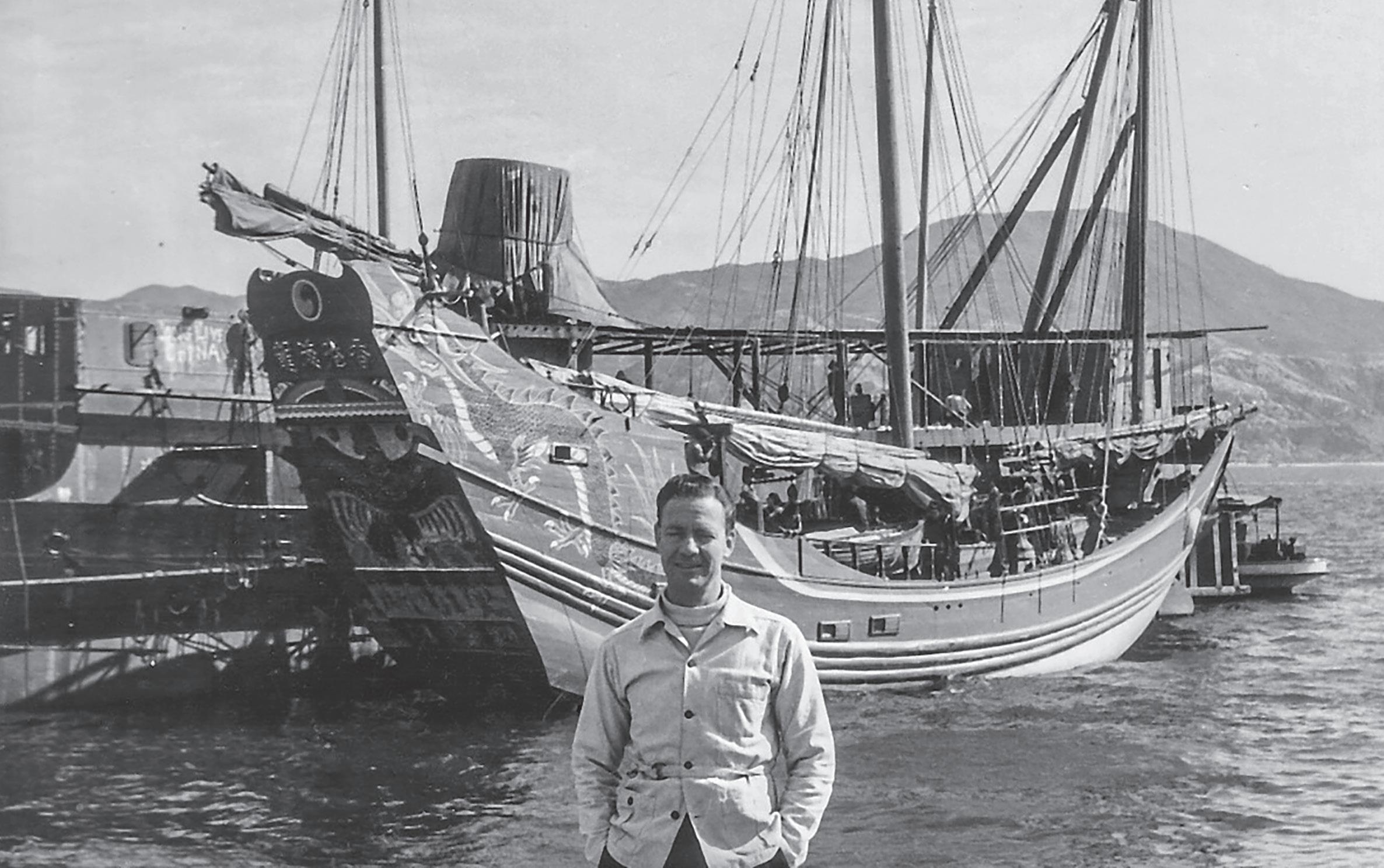
In 1925, Bobbs-Merrill published Halliburton’s first book, The Royal Road to Romance, which became the first of many best-sellers for him. Halliburton was also one of the most successful lecturers in the years between the two World Wars. His vivid reenactments of his adventures helped to popularize adventure journalism.
Hallibuton never married. In his youth, he courted girls and was infatuated with at least two. As he matured, he became bisexual but kept his sexual orientation a secret from the public and his parents, who wanted grandchildren. He was a friend and may have been a lover of one of the first openly gay film stars of the day, Ramon Novarro.
Halliburton commissioned William Alexander Levy, a 27-year-old architect, to build a modern house. Levy was the lover of Paul Mooney, Halliburton’s editor and ghostwriter. The concrete box house was suspended between canyon and ocean in Laguna Beach, Calif. The three men, Levy, Halliburton, and Mooney, each had separate bedrooms. People in Laguna Beach soon dubbed it “Hangover House.”
In 1930, Halliburton hired Moye Stephens on a handshake, but no salary, to fly him around the world in an open cockpit biplane, a modified Stearman CV-3B named the Flying Carpet. Halliburton promised to pay Stephens’ expenses. It was an epic journey that took 18 months to cover 33,000 miles and visit 34 countries.
The two men took off on Christmas Day 1930 from Los Angeles and flew
to New York. There they crated the plane and shipped it to London while they took a ship to London, where the extended flight began. They first flew to France, then to Spain, Gibraltar and Fez, Morocco, where Stephens performed arcbotics. Next, they flew over the Atlas Mountains and crossed the Sahara to Timbuktu. Their next stop was in Algeria where they spent several weeks with the French Foreigh Legion before continuing on to Cairo and Damascus.
In Persia (Iran), they met the celebrated German aviatrix, Elly Beinhorn, whose plane had been forced down due to mechanical failure. They assisted her before meeting Crown Princess Mahin Banu, whom Stephens gave a ride in the open cockpit. In neighboring Iraq, Stephens gave young Crown Prince Ghazi a ride over his school yard.
In India, Halliburton made a point of visiting the Taj Mahal. They then flew to Mt. Everest, where Richard made the first aerial photograph of the famous mountain. In Nepal, Stephens performed aerobotics for the Maharajah of Nepal. In Borneo, they were fed by Sylvia Brett, the wife of the white Rajah of Sarawak. Ste-
phens gave her a brief ride making her the first woman in that country to fly. At the Rajang River, Stephens took the chief of the Dyak headhunters for a flight. In gratitude, he gave them 60 kilos of shrunken heads, which they dumped as soon as possible. They were the first Americans to fly to the Philippines. In Manila, they crated the plane and shipped it to San Francisco. They took a ship to San Francisco, where they uncrated the plane and flew to Los Angeles, the final leg of their trip, which cost Halliburton $50,000 plus fuel. His book about the flight earned Halliburton royalties of $100,000 in its first year.
On March 3, 1939, Halliburton began a new venture. He sailed on the Sea Dragon from Hong Kong across the Pacific., intending to land in San Francisco where he wanted to visit the Golden Gate International Exposition. His crew were skipper John Welsh, engineer Henry Von Fehren, and crew members John Potter and Gordon Torrey, recent Dartmouth graduates. The Sea Dragon venture was troubled from the start. The construction of the Chinese junk was plagued by cost overruns and engineering problems. The boat managed
to get halfway across the Pacific when an unexpected typhoon struck on March 24, 1939. The junk was last sighted by the liner SS President Coolidge, which was having trouble itself dealing with huge waves, some 1900 km west of Midway Island. In the midst of the storm, the SS President Coolidge received a cheerful radio message from the junk skipper that said, “having a wonderful time. Wish you were here instead of me.”
A second message was more somber. After giving their location, speed and course, Welsh said “Heavy rain squalls, high seas, when closer may we avail ourselves of your direction finder? Regards, Welsh.” That was the last message anyone ever heard from the Sea Dragon. After a US Navy search by ships and planes for the missing junk that covered thousands of square miles, the search was called off. In 1945, some wreckage was found washed ashore on the California coastline that was identified as a rudder believed to belong to the Sea Dragon
Richard Halliburton was officially declared dead by the Memphis Chancery Court on Oct. 5, 1939. He was just 39 years old.

Greta Gerwig is best known as an actress who first got noticed on the big screen after her roles in a string of low budget mumblecore movies — particularly those directed by Joe Swanberg. But what many fans of Gerwig’s movie appearances don’t know is that Gerwig co-wrote Swanberg’s Hannah Takes the Stairs, and she and Swanberg co-wrote and co-directed Nights and Weekends Gerwig’s ambitions have consistently played-out on both sides of the camera: She co-wrote the great Frances Ha with her collaborator and domestic partner, Noah Baumbach, and the Gerwig-written-and-directed Ladybird found the filmmaker honored with five Oscar nominations including Best Director, Best Original Screenplay and Best Picture.
I always love Gerwig as an actress, but her efforts behind the camera have been hit or miss: Frances Ha was a revelation; Ladybird was overrated. But Gerwig’s big screen adaptation of Louisa May Alcott’s coming-of-age classic Little Women is a major accomplishment, and
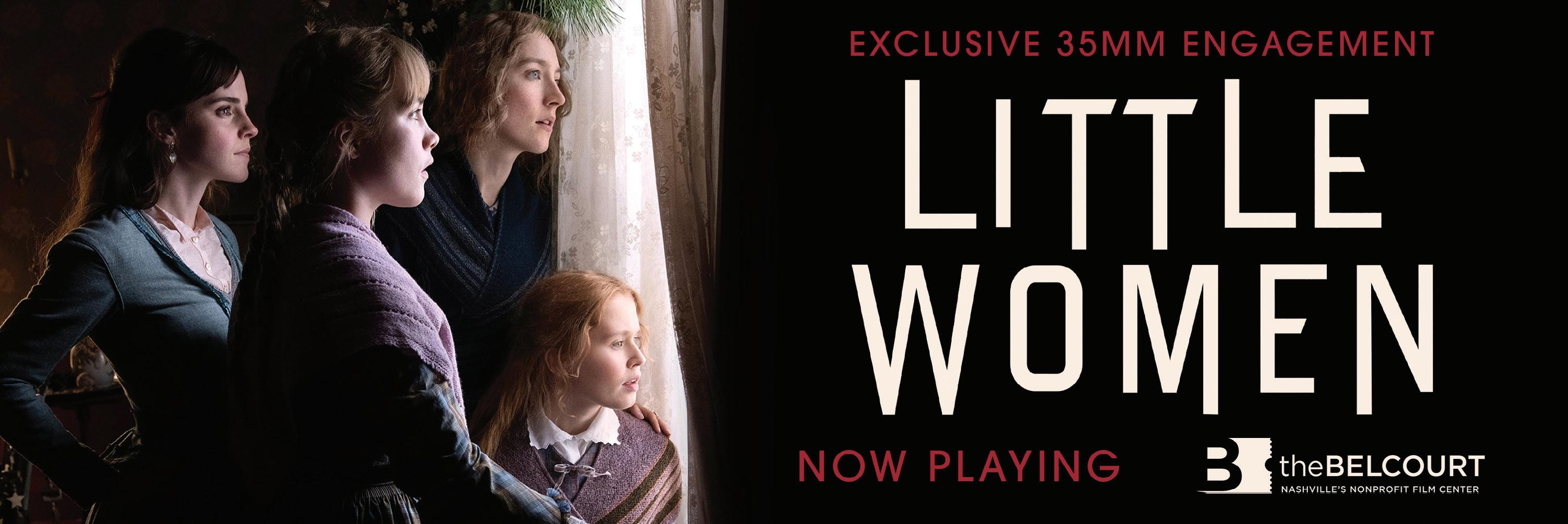
it signals the arrival of Gerwig as an assured, confident writer-director in her own right. She delivers the best ensemble acting film of the year while also creating a family movie for the holiday season. This movie will smash box offices through December and win a place in the hearts of the girls and young women for whom this will be the definitive screen version of the March sisters’ story. It’s a real gift from Gerwig.
The four March Sisters — Jo (Saoirse Roan), Meg (Emma Watson), Amy (Florence Pugh), and Beth (Eliza Scanlen) — live in genteel poverty in a big house in New England. They’re cared for by their mother (Laura Dern), a kindly maid named Hannah (Jayne Houdyshell), and their mean, meddling Aunt March — a scene-stealing busybody as played by the predictably brilliant Meryl Streep. Mr. March is serving in the Civil War and the girls and their mother struggle to provide for themselves and their neighbors in this story about the value — and the cost — of family and community.
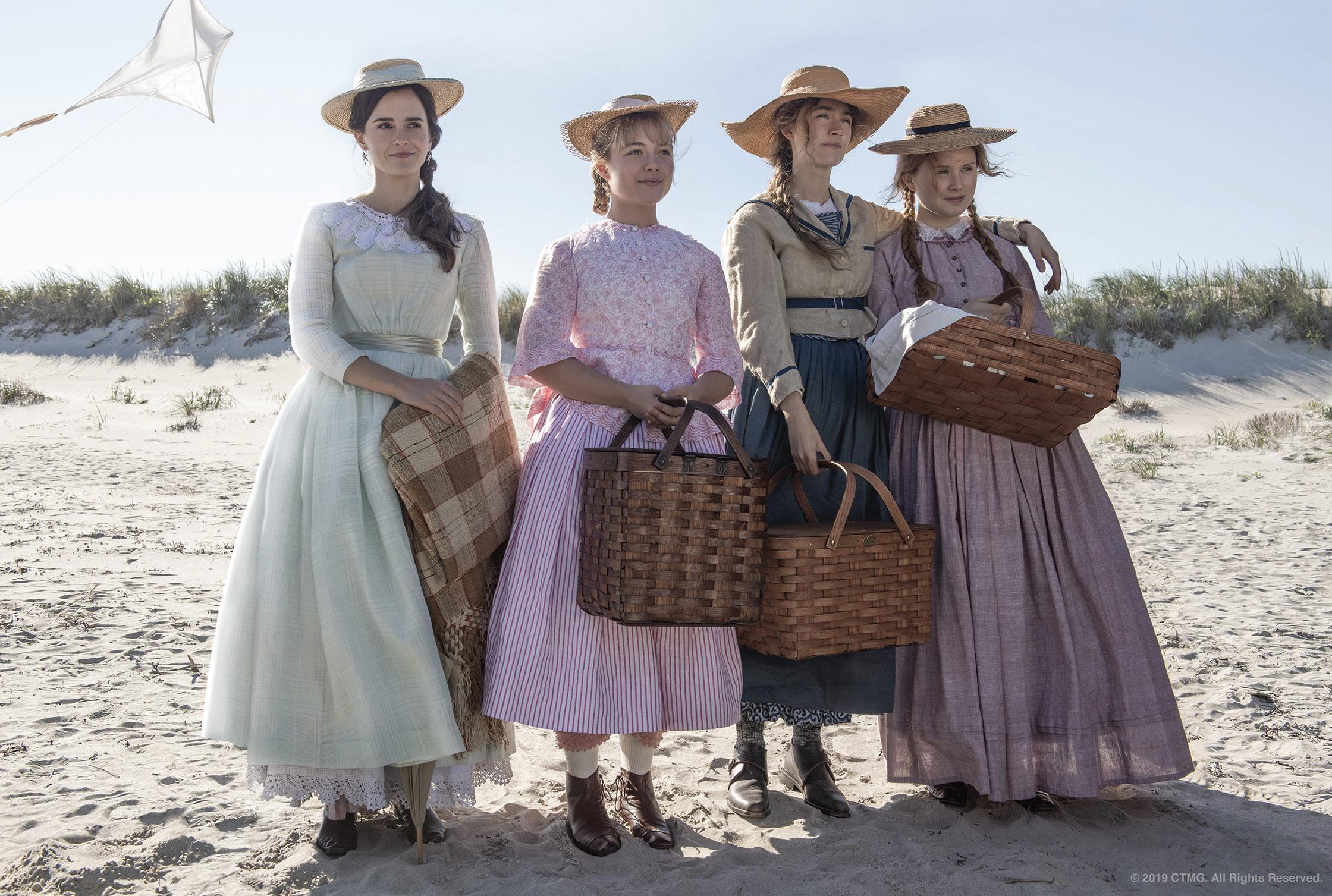
As the title implies, this is a story about adolescents that traces the precarious pathways that connect the various March sisters from childhood into adulthood. Little Women tells the story of the March sisters by jumping back and forth in time from a period when the girls were growing up to a time when the oldest sisters have already moved from home, are considering the idea of marriage, and also confronting the economic limits faced by women in the 19th century. Gerwig keeps her story straight and the time-jumping never becomes confusing — a credit to her lucid scripting. The jumping back and forth on the storyline also creates a kind of rhythm, which the writer-director exploits to devastating effect for the movie’s most heartbreaking reveal.
Gerwig and editor Nick Houy craft imaginative sequences here, and the director works with cinematographer Yorick Le Saux to capture her characters in frames that leap right out of the Hudson River School of painting. But
it’s Gerwig’s
that beams from every
of this
actorly collection of masterful performances. I can’t remember the last time I saw a movie with a more impressive array of performances across an ensemble, and Timothée Chalamet, Chris Cooper and Bob Odenkirk all shine here as fully realized supporting characters which is again do to Gerwig’s full-blooded script and her eye for natural performances.
I’m not the target audience for Little Women, but I loved it as a fan of film. This is one of the best movies of the year and Gerwig and her cast deserves a lot of attention as we head into the fever pitch of awards season. Don’t miss this one.
Little Women opened on Christmas Day at the Belcourt Theatre. The movie is screening on 35mm film.
Joe Nolan is a critic, columnist and performing singer/ songwriter based in East Nashville. Find out more about his projects at www.joenolan.com.
Jonnie “Pops” passed away on Dec. 17 after suffering complications from health problems. We’ve left this story intact to show how the system had failed him.
Wherever Dana goes, Jonnie “Pops” goes too, and vice versa. He’s in a wheelchair, and she’s his girlfriend and caregiver. For a couple like them, the options are limited when it comes to shelter in Nashville. The only place that offers shelter for them is the Metro Emergency Shelter, which opens when the temperature drops to 28 degrees or less in the winter months. The rest of the time, they sleep on the street.
“Without me, who’s going to take care of him? I know all of his needs,” Dana says. “Nobody else knows what he needs but me. They can’t separate us, even if they wanted to.”
Advocates share examples of people experiencing homelessness shut out of a shelter because they couldn’t bring their belongings or pets in or they missed the deadline to get a bed. There are stories of addicts and those with mental health problems left out in the cold because the shelter systems in place don’t work for them.
It’s stories like these that prompt calls for a low-barrier shelter in Nashville, but what would that look like? And how far away are the existing mainstays — Room In The Inn, Nashville Rescue Mission, Launchpad and the Metro Emergency Shelter?
In its emergency shelter learning series, The National Alliance to End Homelessness identifies a number of facets to consider a shelter to have “immediate and low-barrier” access. They include:
• Shelter is open 24/7
• People do not have to line up for a bed each night or leave early in the morning
• No drug and alcohol testing to get in
• No criminal background checks to get in
• Allowing people, pets and possessions
• Do not require service participation to stay in shelter
• Serving households of any configuration including couples without children, persons identifying as LGBT, two-parent households, mothers with teen boys
• Serving people using substances and/or with mental illness, regardless of treatment compliance
Launchpad, a rotating-location shelter for youth ages 18 to 24, is the only area organization that describes its shelter service as low-barrier. It doesn’t separate by gender, which allows all couples while also allowing gender nonbinary folks to feel more comfortable.
Rose Marie Pink, board president of Launchpad, says: “It’s hard. Other shelters have been running for a very long time, and they have models that are based on separating people by gender or by sex in inflexible ways, and they don’t really have a way to deal with nuance in that.”
Both Launchpad and Room In The Inn — which buses groups of people to sleep at congregations around the city — depend on the generosity of churches. This means folks seeking shelter must arrive and leave at a certain time and cannot bring their pets. In the earlier days of RITI, there were congregations who accepted couples, but there aren’t anymore. The number of congregations willing to host women has also decreased over the years — and sometimes the beds that would be reserved for single women go to a family if the need arises.
“We used to have many more congregations that took couples, and we were able to do that,” says Rachel Hester, executive director of Room In The Inn. “Couples are complicated and while we did that for many years, there were issues of domestic violence, there were issues of intimacy that happened. We had a lot of single individuals complain. There probably does need to be a couples shelter. Unfortunately I don’t know that Room In The Inn is that appropriate place.”
While there is scheduled draw times for beds and scheduled bus pickups at RITI, there is flexibility for those who work during those times — they can call in and ask for a draw or arrange to be in a church close to their place of work. Launchpad does its reservations online and its locations are accessible via bus routes.
In an effort to lower barriers, Nashville Rescue Mission is letting dogs in the building to sleep in a crate next to their owners for the first time this year.
The organization has also chosen to let in previously banned folks during the winter season and only a small number of known violent offenders aren’t allowed in.
What won’t be changing is the requirement to spend an hour in a religious service to get a bed — though those who work at that particular hour can get out of it.
“That is who we are, that’s what we’re about,” says Glenn Cranfield, president and CEO of Nashville Rescue Mission. “To change that would be to try to change our identity, who we are and our purpose for being. We’re not changing that.”
To utilize the Metro Emergency Shelter, people must be bussed back and forth from the Salvation Army at 631 Dickerson Pike to an old inmate reentry dormitory at 5131 Harding Pike. Belongings can come in, but they are searched and participants are frisked. Pets can stay in kennels, and people can leave as they please, but must arrive by 1 a.m.
On paper, these organizations may tick certain low-barrier boxes, but there are psychological barriers that are harder to measure. Some folks seeking shelter have an aversion to religious services and church locations based on past experiences. Nashville Rescue Mission hosts hundreds of people a night, and the crowds are unavoidable. Local advocates have brought up many times that the former jail location for the Metro Emergency Shelter this year keeps some from wanting to take shelter there. In the past, community centers have been used for this type of shelter instead. Past
The shelter safety net still has holes. In theory, low barrier shelters are the answer. But what about in practice?
Serving households of any configuration including couples without children, persons identifying as LGBT, two-parent households, mothers with teen boys
No service participation requirement
No criminal background check
No drug and alcohol testing to get in
People do not have to line up for a bed each night or leave early in the morning
Shelter is open 24/7
traumas can cause a person to choose to take their chances outside.
Pedro L., a Contributor vendor who has stayed at Nashville Rescue Mission most nights for the last seven months, says some barriers are needed, especially when it comes to drug and alcohol use. He says those under the influence are more likely to start a fight, and staying at Nashville Rescue Mission with hundreds of other men, he has fear for his safety.
“The only thing that upsets me is people tend to drink, and they don’t test them,” he says. “They should do an alcohol breath test on them because you got a lot of people that fight, they’re not on their medicine.”
Lisa Cook, founder of Sacred Sparks Ministry, ran a series of small low-barrier shelters in Madison and Brentwood since she was ordained in 2014. She let couples, pets and belongings stay without screening.
“I called it radical hospitality,” Cook says. “I didn’t care who you were, or who you were with. If it was cold, you need to come inside.”
For the first time, she won’t be running a shelter this year. She made the difficult decision to focus her attention on outreach for those staying outside instead.
In October, when she found out that the city wasn’t doing shelters, she scrambled to set up locations. Then, the plans turned the other way, and Mayor John Cooper announced that the shelters would be fully funded. Still, Cook was
skeptical because details of the plan did not come out for more than 20 days — and the location didn’t help.
“I know that they’re not going to take advantage of that kind of shelter, so I had to work under the assumption that there would be more people choosing to stay outside this year,” Cook says. “It’s almost like a cost benefit analysis. I could have opened the shelter, but it wouldn’t even touch the need, and I would be using up my time and resources for 30 people when I could be touching 30 people a day doing outreach.”
In opening her own low-barrier shelters, Cook took a page from Open Table Nashville, who had to make the same difficult decision to stop hosting shelters in 2014. When Open Table started in 2010, some of the co-founders were already running small, low-barrier shelters for people who couldn’t or wouldn’t go into Room In The Inn or Nashville Rescue Mission. When canvassing the city on the coldest nights, co-founder Lindsey Krinks, along with a team of volunteers, met people experiencing homelessness in need of a solution.
“They said ‘I’d rather freeze to death that go in the shelter,’ and we said, ‘What if we had another place you could come?’ and they said, ‘OK we’ll try it.’ We had built trust with them, and that trust is a very important and fragile thing,” Krinks says.
“They trusted us enough to give it a try.”
Running those shelters took time away from canvassing, and it started to become overwhelming, Krinks says.
Then, in 2013 a man named Jimmy froze
to death on the steps of an East Nashville church. This very public death marked a turn of the tide. Krinks said she and a very small team of staff came to the conclusion that the private sector alone can’t fill this need — it’s too great. They needed help from the public sector to give winter shelter to those who were falling through the holes in the existing shelters’ service.
Krinks was part of the group that marched a casket from the downtown library to the site of the Metro Homelessness Commission meeting, urging the local government to get involved.
Cold Weather Plan meetings started in the summer of 2014, and the city implemented a cold weather plan with emergency shelters in 2016.
Room In The Inn is built on the idea that one person can step up to fill a need in a community. It was founded in 1985 by Father Charles Strobel, who opened up his parish to people seeking shelter in the church parking lot. The organization has grown to include 200 congregations and gives 30,000 beds a winter season. Opening up a shelter is not Metro’s core competency, Hester says.
“When the city steps in, I see them as the cavalry,” she says. “We’ve lived through ice storms, polar vortexes, power outages. That is when I think it’s an absolute necessity for them to step in. And they ought to be engaged and understand what’s going on in our community. I don’t see them opening up a
shelter that’s going to be everything to everyone.”
Krinks and Cook agree that the answer is smaller, geographically dispersed shelters. They just can’t shoulder that along with the outreach they’ve made their bread and butter.
“Development is pushing people out of the city...We’re seeing more and more people move out to places like Madison, Rivergate, Bellevue, Antioch, and all these satellite locations. They can’t get back and forth to [the Nashville Rescue Mission] and when they do come downtown, they’re criminalized.” Krinks says. “You can’t cram 1,000 people into a two-block area around The Mission and Room In The Inn and expect it to go well.”
Cook added, “Last year I decided not to do shelters and do outreach like I’m doing this year and Metro [Homelessness Commission] reached out to me and asked me to open overflow because there were too many people at their shelter. So they need to recognize that they need us at the table, and it has to be a mixture of private and government work being done, because they’re just not able to do what needs to be done.”
Demand is not decreasing in the way homeless service providers would hope, and for those experiencing homelessness in these cold temperatures, ‘there’s always next year’ is not guaranteed.
“We have to get this settled before next year,” Cook says. “We have already screwed this year up. If we screw next year up, we are a ridiculous city. We can do better.”
Allows people, pets and possessions
– General William Booth, Founder

What is The Salvation Army? It is an organization existing to effect a radical revolution in the spiritual condition of the enormous majority of the people of all lands. Its aim is to produce a change not only in the opinions, feelings, and principles of these vast populations, but to alter the whole course of their lives so that instead of spending their time in frivolity and pleasure-seeking, if not in the grossest forms of vice, they shall spend it in the service of their generation and in the worship of God. The promise in the United States is “Doing the Most Good”.
Doing Justice. Doing Righteousness. Doing Love. We all need to be accountable for every aspect of our journey through life. We are changing and accountability helps us keep going in the right direction.
So to what extent has the Army succeeded? Its fl ag is now flying in 131 countries. Approximately 30 million Americans receive assistance from The Salvation Army
each year through a range of social services: food for the hungry, relief for disaster victims, assistance for the disabled, outreach to the elderly and ill, clothing and shelter to the homeless, and opportunities for underprivileged children. Eighty-two (82) cents of every dollar The Salvation Army spends is used to support those services in 5,000 communities nationwide.
In Nashville, there are three primary areas of service: Quality of Life Supportive Housing; LIFNAV coaching for socially displaced individuals to reduce the days of homelessness and assist neighbors to housing through behavioral economics; and Pathway of Hope ending generational poverty for families through 2 generations social mobility support. All of this is done through four campus ministries committed to building community.



Doing Justice. Doing Righteousness. Doing Love.
What are the processes of doing justices and doing righteousness in which this great Army has been made? The slightest reflection will be sufficient we are sure to convince any impartial individual that the gigantic results attained by The Salvation Army could only be reached by steady experimentations adapted to this end.
Be assured that it is through continual experimentations that The Salvation Army will #FightForGood in
2020! #FightForGood so that children have the resources needed for the opportunities for which they have qualified. #FightForGood so that Nashville remains a leader in compassion moving people quickly off the streets, from our front door to a door of their own. #FightForGood so that mothers have the resources to participate in job training to increase their income to a liveable wage. #FightForGood for the lonely to fi nd community. #FightForGood for the hurting to live in hope. #FightForGood for Justice, Righteousness, and Love.
Please join us in the #FightForGood. Text “FightForGood” to 484848 for current opportunities to live, give, and share, justice, righteousness, and love. #FightForGood 2020.
Major Ethan Frizzell serves as the Area Commander of The Salvation Army. The Salvation Army has been serving in Middle TN since 1890. A graduate of Harvard Kennedy School, his focus is the syzygy of the community culture, the systems of service, and the lived experience of our neighbors. He uses creative abrasion to rub people just the wrong way so that an offense may cause interaction and then together we can create behaviorally designed solutions to nudge progress. Simply, negotiating the future for progress that he defines as Quality of Life in Jesus!

“God loves with a great love the man [and woman] whose heart is bursting with a passion for the impossible.”

Healthcare for the homeless is scarce. If you don’t have a driver’s license or a military ID or even a social security number, you can’t get healthcare. If you don’t have an address, then healthcare is non-existent. The homeless are overlooked because they are homeless. Even hospitals overlook the homeless, even doctors don’t give out medicine because they don’t think the homeless can pay for it. The homeless are profiled by everyone. This is a problem for the homeless and that means no healthcare.
Just because you don’t have a driver’s license or SSI card or even an address does not mean you don’t deserve healthcare. This is just one more way to get rid of the homeless. There’s a vendor that I work with that needs healthcare and can’t get it. There are a lot of homeless people out there that need healthcare and can’t get it. And the money that needs spending for the homeless. They need to buy a building for the homeless to go to all year ‘round — not just in the winter time. There needs to be a place for the homeless to go to sleep, take a bath, and get the care they need.

If the homeless don’t get proper healthcare they will get sick and die. Nashville does not care about the homeless. They think the homeless should disappear or go away. Well we are here to stay. But healthcare is so scarce that it is nonexistent. And in some cases the homeless can’t even go to the doctor’s because they don’t have healthcare. It is not the homeless’ fault that they can’t get healthcare. It is just another way of not letting the homeless get the care they need. Because healthcare will always overlook the homeless no matter what we do. The homeless will never get the healthcare they really need. The homeless will always be turned away for healthcare, because healthcare considers the homeless less human, or doesn’t even consider them a person. The homeless will always be turned away.
A friend of mine who is homeless went to the ER and had a broken foot and tried to get medicine for it and they turned him away. But a lady in front of him had the same thing and they gave her medicine. Why is that? I will tell you why, because the homeless do not matter here in Nashville, TN.
Nashville and healthcare are blind to what the homeless need. Nashville thinks that the homeless will just go away, and healthcare thinks the homeless will just die off so they don’t have to give us healthcare, and so they don’t have to deal with us. The homeless problem is never going to go away.
More than half of people experiencing homelessness have had thoughts of suicide or attempted suicide. Over 40 percent of youth experiencing homelessness. It is sad that young people today have to be homeless. Each winter, freezing temperatures threaten the lives of at least 193,000 unsheltered Americans experiencing homelessness. And that is sad that this has to happen, and no one gives them the healthcare they need.
Healthcare will never let the homeless in, and neither will Nashville. They will always be blind to the homeless. So in perspective, the homeless will never get healthcare. Nashville needs to understand that the homeless need healthcare too, and if the homeless don’t get the healthcare they need, the homeless are going to get sick and die or even freeze to death. This is what the homeless will experience if the homeless don’t get the proper healthcare. Nashville needs to deal with this problem and make healthcare available to the homeless. This is a problem for the homeless and we need to address it immediately. Because the problem is not going to go away, just like the homeless aren’t going to go away. Let’s face the fact that we have a problem and we need to take care of it as soon as possible.
HAROLD B.
As far as this year We’re coming to a close Looking at the list We see nobody owes
Standing on the block We heard you The new year is coming And Santa is too
“Happy New Year”
VICTOR J.
People in life are always afraid of people, places, things, and life because they think they won’t make it.
James will always be in our hearts forever. He has a new home now, we all have a home and it’s called Heaven! We will never be homeless again. God’s love shines upon us!
Wandering around with nowhere to go. Everywhere you look people are aglow. They walk around with a smile on their face. At night they go home because they have their own place.
I’ll find me a place, maybe a heated grate. I’ll stay as long as I can until the police run me away. The mission is not an option to me. There are junkies, drunks, and there’s always some thieves. You can’t close your eyes, you are afraid to go to sleep. So you get a little rest so you can face the next day. Wandering around trying to find somewhere to stay. One day this will all be over to my heavenly father I pray. Affordable housing Nashville will have some day.
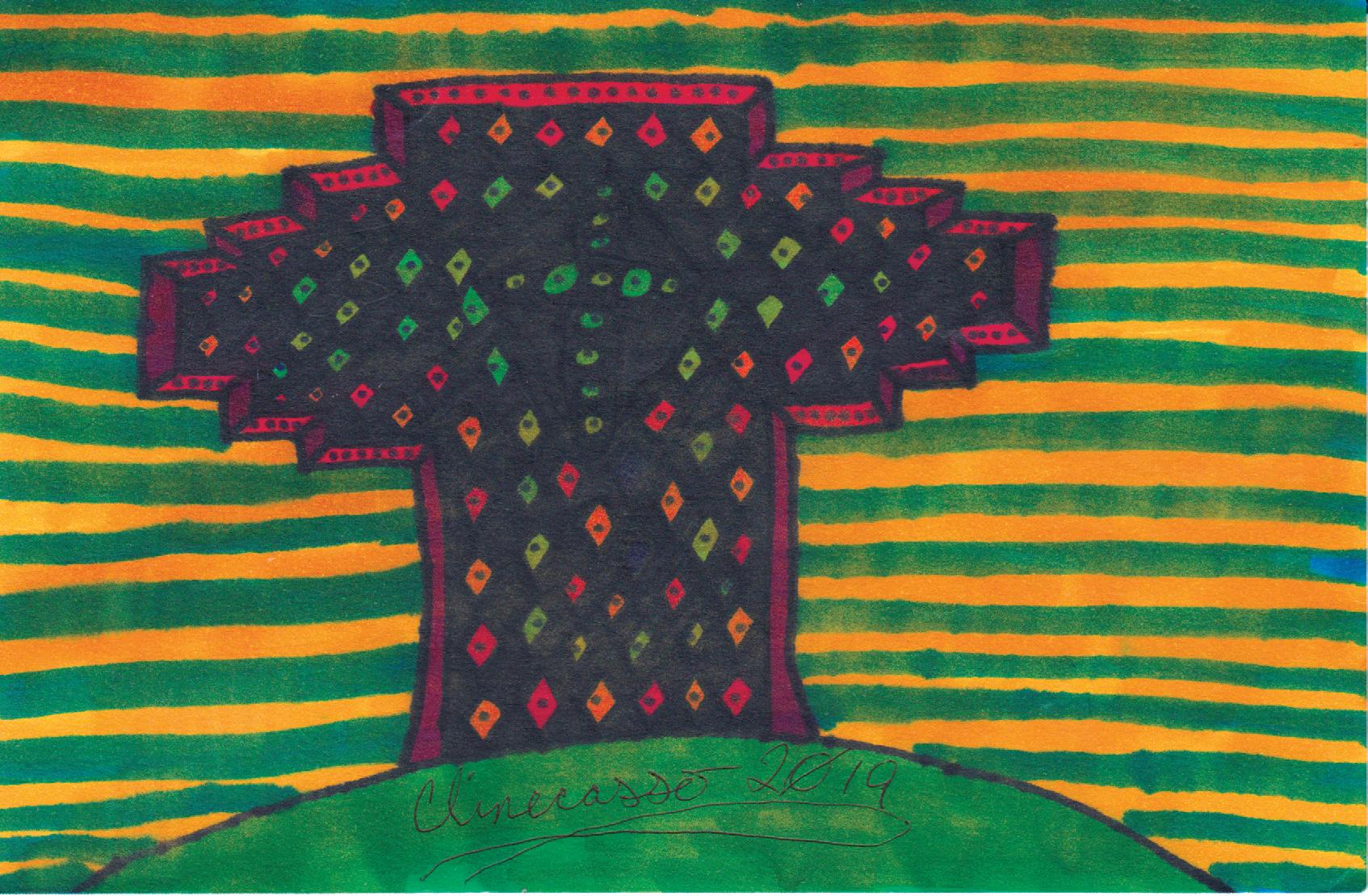
WILD BILL
Yeah, see ‘em all the time No reason for lies in this line I saw a cat run under my bed We don’t have a cat What’s up with that?
I hear noises too, like things from space They don’t make any sense You can tell by the line on my enemy’s face I call ‘em “The Shadow People” They might be from outer-space Or time travelers caught out of place They’re cool and calm and mean no harm I don’t know why Sometimes they don’t talk or make a sound Maybe they’re with the CIA Government won’t tell everything Yup, all we need is a government with the CIA or IRS Poor ole Shadow People
A little boy and his father were in a real bad wreck. The father dies. The little boy is rushed to the hospital. The doctor can’t operate on the little boy. Why? The doctor is the mother.
You’re so ugly tears come down the back of your head because they’re too scared to come down the front.
Homeless, helpless, hungry and cold These other things never get old
If I had shoes, I’d walk out of this concrete jungle Find a place in the country without the bumble
People glare at me with ignorance Help the starving in other countries But the buck stops here
Hold the phone, jacket, and tie Grab your briefcase all on the sly Someone is watching you in the sky
You are all created equal It’s just some are more equal than others Everyone who’s born has a father and mother To love and care but something went wrong
If you can read my words, sing my songs Requiem for the masses In a land of freedom and class
It’s always open season So raise up your glass
Just like Nero
I heard a new born baby cry
I can’t see, for the tears I cry Hungry, hopeless, and cold
Recently I was offered tickets from to see a performance sponsored by the Christian Relief Foundation along with other co-sponsors.
The entertainers that evening were Dave Barnes, Audrey Assad and the Sonus Choir.
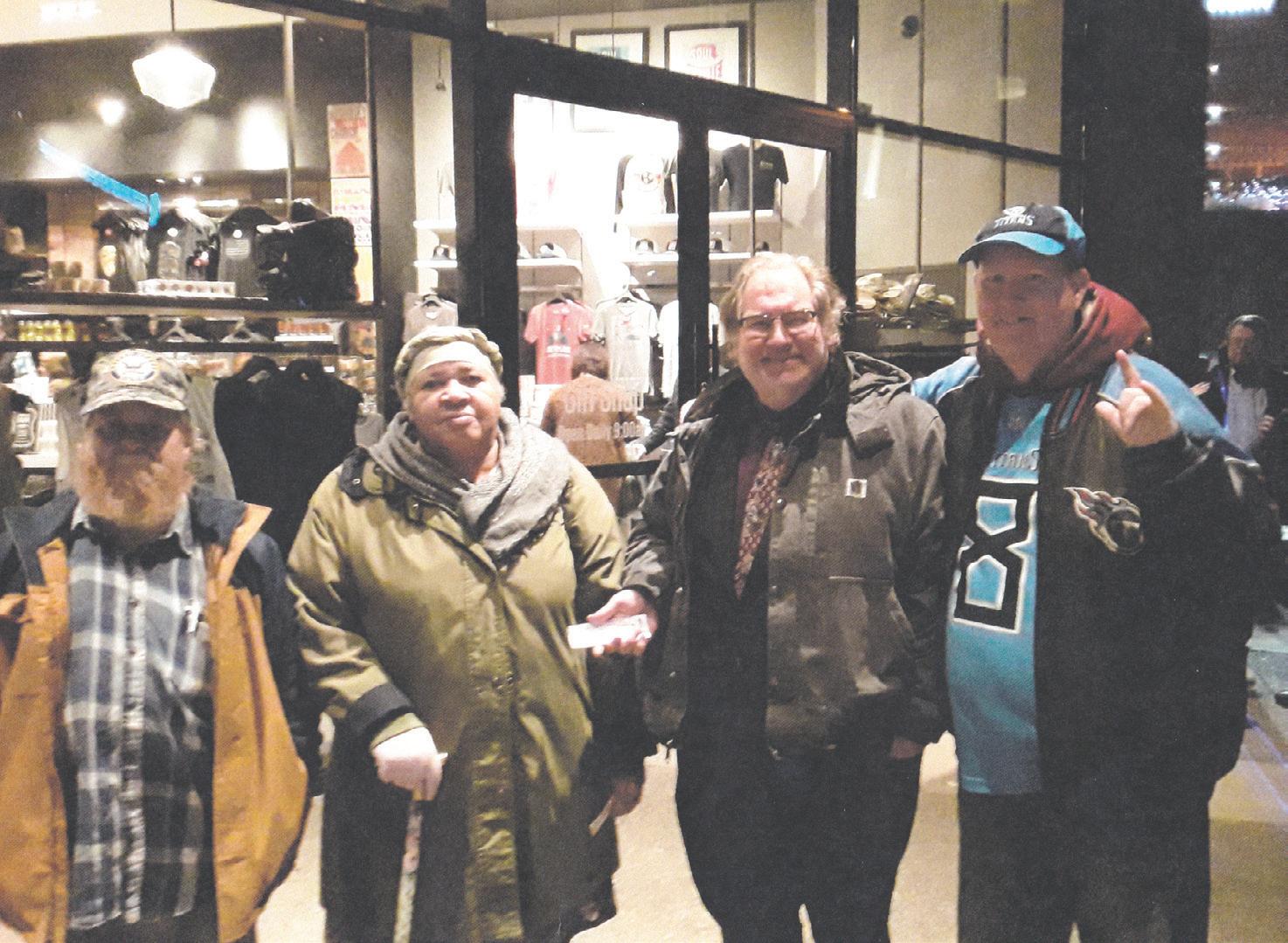
This being my first time visiting the Ryman Auditorium, I wanted a lasting memory of my visit. Earlier that week, my friend and fellow Contributor vendor David Cline and I were given two tickets. We invited two dear friends of ours, Amatulla and Robert to attend the show in the evening of Nov. 24.
The show began at 6 p.m. and lasted until 10 p.m. with a half-hour intermission. As we arrived, the security and staff treated us with the utmost kindness and respect. The establishment was clean and suffused with a sense of time and history. I saw a painting wall which
showed singers, musicians and past performers who had graced the presence of the Ryman. If you close your eyes, you can imagine the love and hard work it took to put a performance on every night.
We were seated and a person took the stage to inform us of what the evening performance would be like. We laughed and listened to the beautiful voices and comedy that is missing in our world today.
As a homeless person I can tell you that for a brief moment, the Ryman made me forget the hunger and pain that so many of us experience every day. Thank you to the Ryman auditorium and The Contributor for the opportunity that we would never have been able to afford. There needs to be more people to show the love we were given.

 BY JAMIE W., CONTRIBUTOR VENDOR
BY JAMIE W., CONTRIBUTOR VENDOR
My God, I miss her so much. They did not have funeral services for her until July 20. The heroin she was on was laced with fentynol. They were selling drugs where she lived and I had no idea her husband was doing the drugs too. As far as I’m concerned, I don’t ever want anything to do with him ever again. I hate being lied to. I miss her so much. Sometimes I will be like, “I need to call and check up on Pam.” But you can’t contact the dead. I just wish she could have lived to see me turn 40. She did not have much of a funeral. I wish I could bring her back. I feel like sometimes my body is shattered and I feel so broken, but I know there’s no point in dwelling on it. There’s nothing anyone can do about
it. If I could tell her how good I’m doing, I know she’s looking down on me, smiling at me, and that’s why I’m glad I got myself straightened up. I’m so glad that I don’t drink or smoke crack anymore. If there’s anyone out there on drugs or drinking, I hope you can seek professional help, because without it you will end up six feet underground, or in jail or prison, or in the mental institution. I thank God every day for Pamela and there will never be a day that goes by that I won’t miss her or think of her. A short time after my mom passed away, Pam always told me that she was the closest thing to mom that I had. I did not believe it at the time, but now that she’s gone, I believe it.
On Nov. 26, 2018 my grandmother died. Her name was Patsy. She was very close to me. She died in Ohio, and we all went to the funeral. It was a happy funeral, and it was a sad funeral. The day that I saw her and we had to bury her away, it took a lot from me.
She taught me a lot of things. She said, “Dennis, don’t do this, don’t bring no crimes, go to school, get your education, get a job, do right, and one day you’ll have your own apartment. When you get your own apartment, watch who you let in your apartment.” I’ve had my own apartment since June 6 or 7. Been here for a while now. I’ve had ups and downs, but everything is OK. I’ve got a job at Nissan Stadium, a job at The Contributor, meeting different people, unique people that I haven’t seen before. I’ve met some good people, some fair people, some bad people. I go to Holy Name Catholic Church. I love my church.
I go to a men’s study group for Bible study.
My grandmother loved her Bible. She loved watching Pasquale — a cooking show. She was a good person. She lived her life. She went to church. She graduated from high school in Toledo, Ohio. She was a wonderful person. Now I know what kind of person she is.
The family loves her and misses her, and can’t wait to talk to her. I can’t wait to go to the grave and visit with her and tell her how I’m doing. She’s looking down at me, and telling me, “Dennis, no, that’s wrong, God’s going to get you, he’s going to punish you. He’s going to forgive you, but he’s going to get you. Watch what you do.”
There are good memories with her. I wish she was here to know who I am now. I wish she was here to celebrate Thanksgiving, Christmas and a lot of good things.
One more thing: Happy Birthday, Grandma. Love you. From Dennis.
